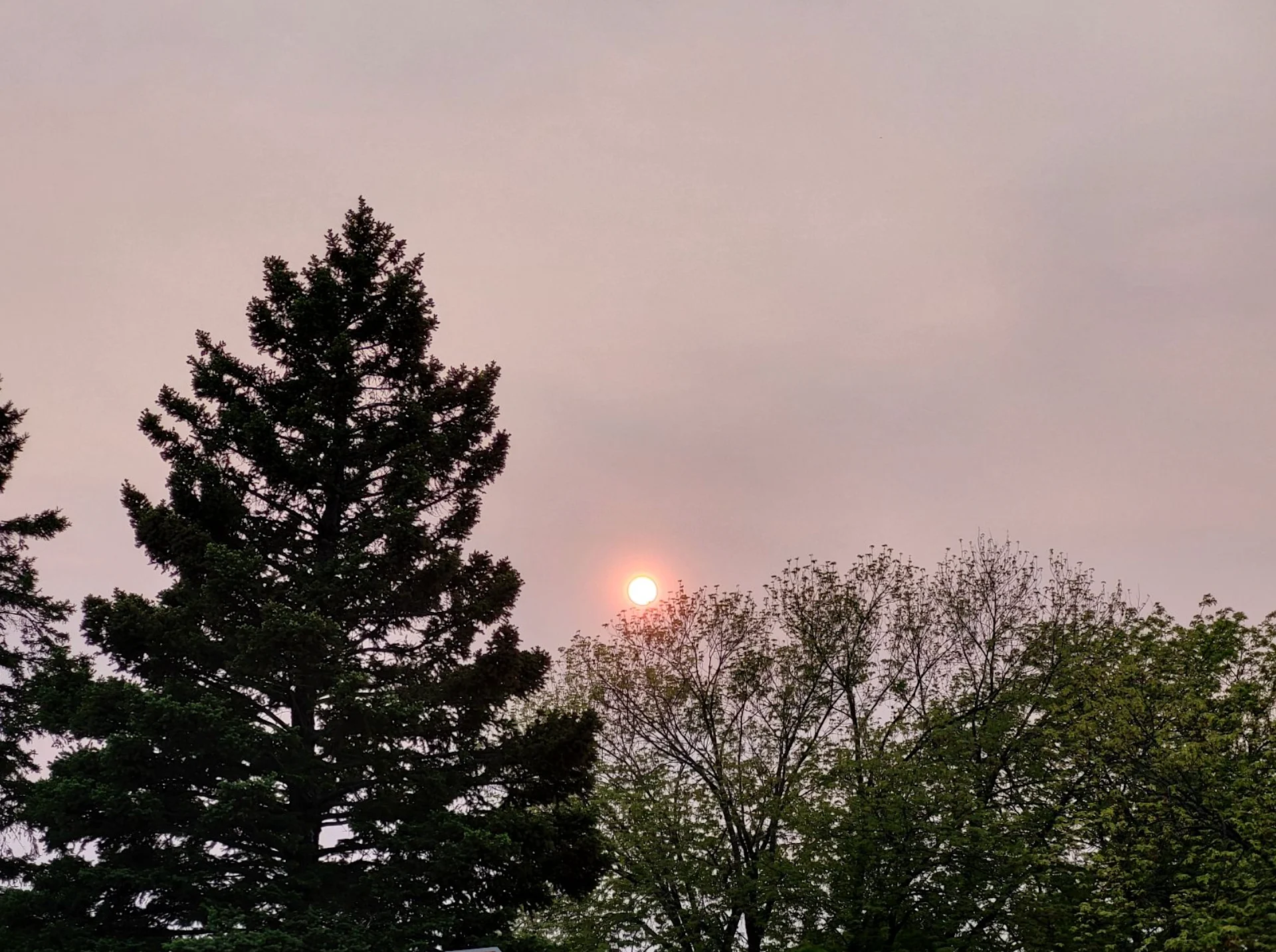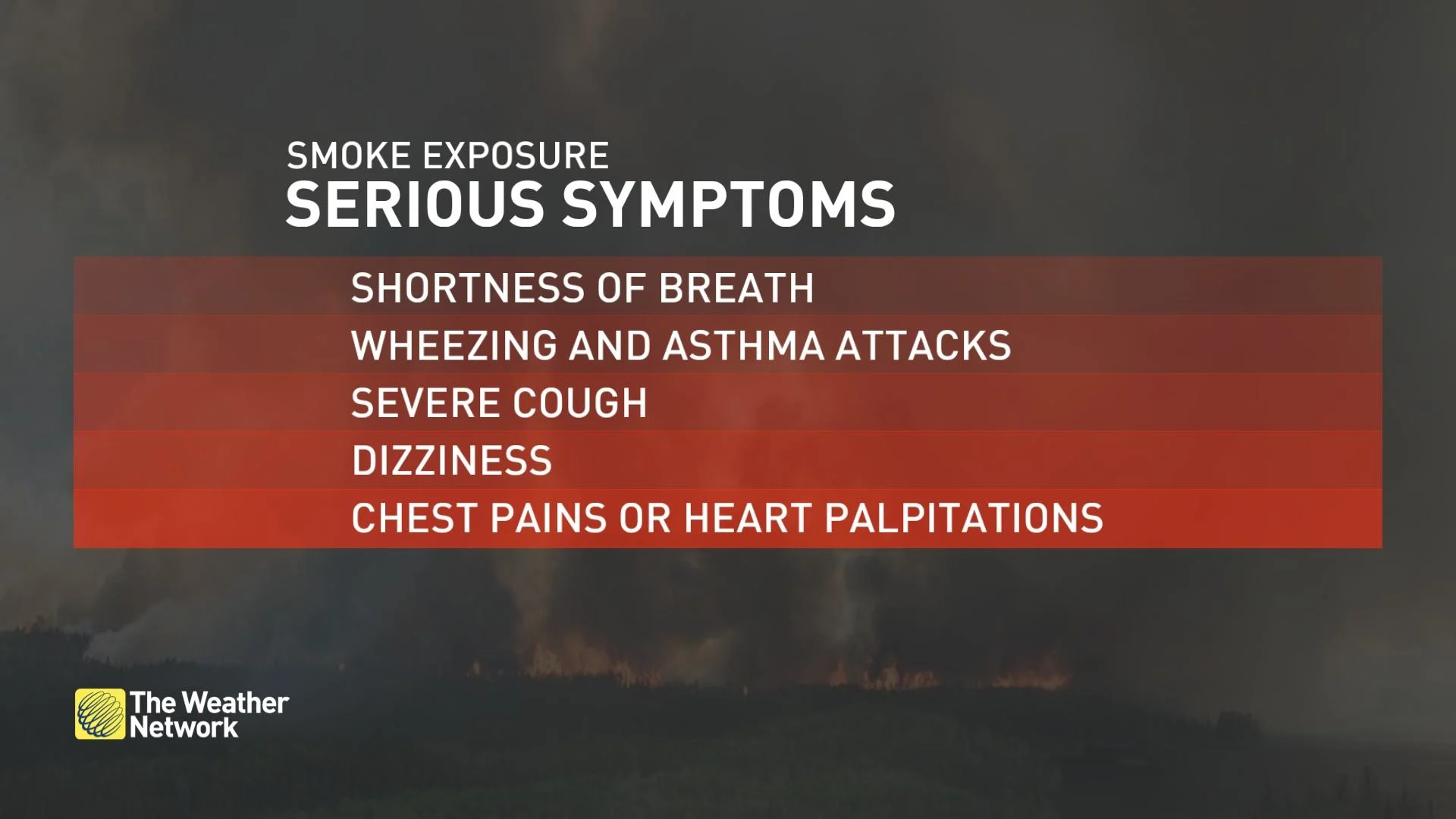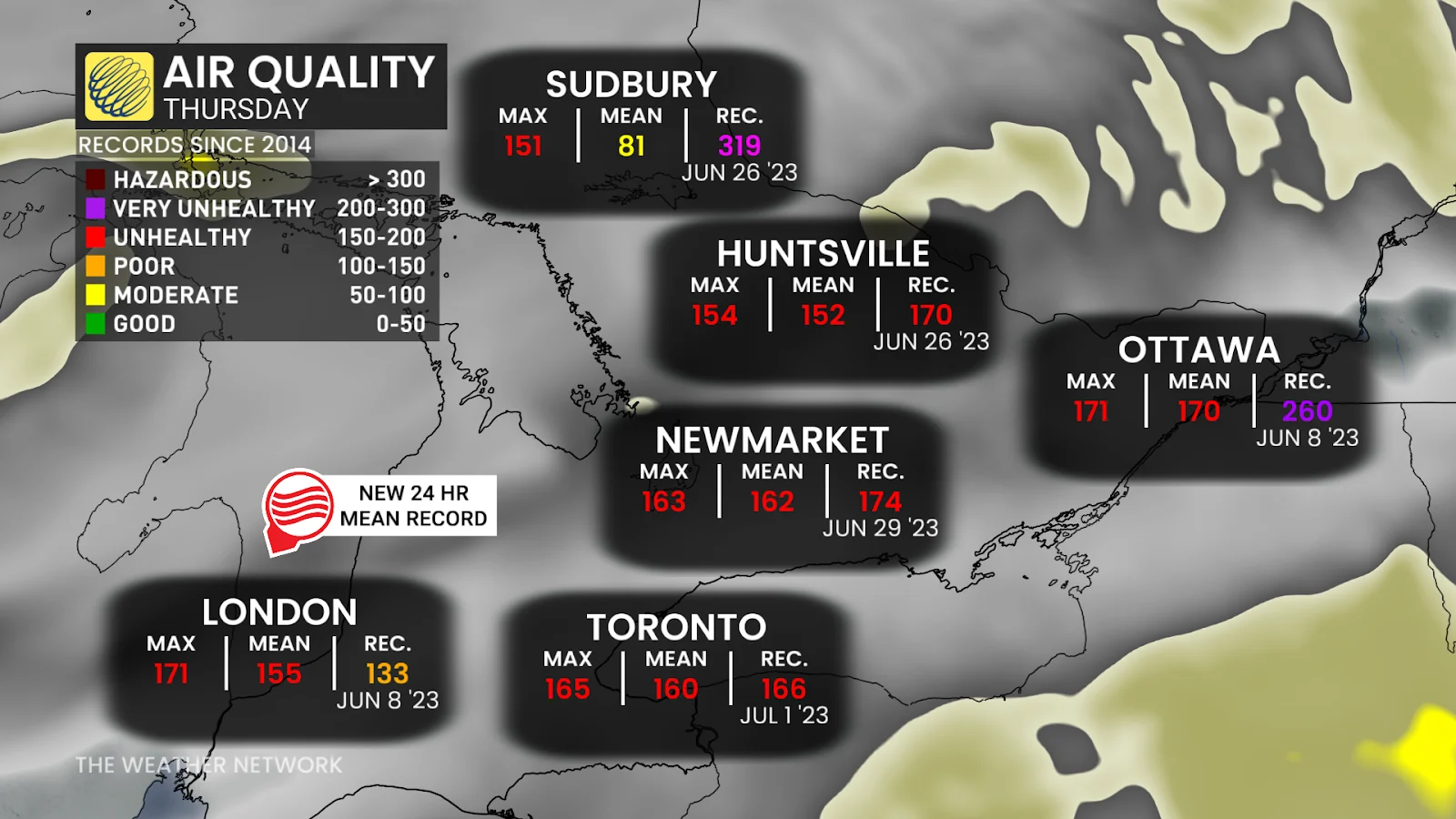
Smoky skies drop air quality levels in southern Ontario
Wildfire smoke blowing into Ontario has dropped air quality to poor levels, but conditions will finally improve come Sunday as a centre of high pressure moves east
Prolific smoke that’s blown across North America and beyond over the past couple of weeks will bring reduced air quality to southern Ontario through Saturday, with an improvement expected on Sunday.
DON’T MISS: Best practices to keep yourself safe from wildfire smoke
Significant wildfire activity across the western half of the country has sent plumes of smoke from the Arctic to the tropics—and even across the pond toward Europe.

Most of the smoke we’ve seen of late over southern Ontario has remained elevated, contributing to hazy skies and vivid sunsets.
Rain and strong winds that pushed through the region Wednesday and Thursday helped push some of that smoke down to the surface, reducing air quality and leading to a distinct burning smell at times.
Thick smoke Thursday evening and overnight brought the Air Quality Index (AQI) for much of the region to extreme lows, rivalling the GTA's record-lowest average AQI over a 24-hour period and breaking that very record in London.

Previously, much of Ontario's record-lowest AQIs were set in June and July of 2023—Canada's most destructive wildfire season to date.
High pressure is usually a sign of sunshine but this weekend will be a little different for southern Ontario. The remaining smoke over the region will be compressed to the lower levels.
There will be some good news come Sunday, though. As the centre of the high drifts east on Sunday, cleaner air will start to move in from the south.
While there are no longer any reduced air quality could prove irritating to vulnerable people, such as those living with chronic respiratory problems.
While there are no longer any reduced air quality could prove irritating to vulnerable people, such as those living with chronic respiratory problems.
